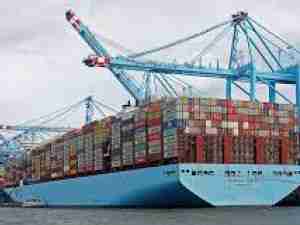Glencore Debt Shrinks With Deals From Agriculture to Gold
By: | Apr 06 2016 at 10:49 PM | International Trade | Maritime
Glencore Plc’s $2.5 billion agriculture deal is another milestone to solving Chief Executive Officer Ivan Glasenberg’s biggest problem last year—reducing a mountain of debt.
Canada’s biggest pension fund will buy a 40 percent stake in the agriculture business and Glencore said it may sell an additional 20 percent, which could be worth $1.25 billion based on Wednesday’s deal. Other transactions are in the works, including the sale of two small copper mines and Australian coal and rail assets.
The latest deal “shows continued asset disposals as promised, but perhaps a lower price than hoped,” Marc Elliott, a mining analyst at Investec Plc in London. His September research note on Glencore’s debt helped send the shares plunging 29 percent in one day.
“They made bold plans which could be challenging to deliver, certainly in a bearish environment,” he said.
The agriculture deal yesterday valued the division at $6.25 billion, underwhelming some who had expected a higher amount. That could pressure Glencore to deliver more to meet its target of reducing net debt to as low as $17 billion, from $25.9 billion at the end of last year.
The company is confident of getting more than A$1 billion ($757 million) through the sale of its Australian coal train assets, which include nine locomotives, wagon and supporting equipment, a spokesman said last month. Earlier this week, its Kazakhstan mining unit sold a gold deposit for $100 million.
Additional Deals
“We expect Glencore to sell its Lomas Bayas and Cobar copper mines for more than $1 billion,” while additional precious metals streaming and infrastructure deals are also possible, Jefferies LLC analysts including Christopher LaFemina said in a note Wednesday. While the divestment of a stake in the agriculture unit will strengthen Glencore’s balance sheet, “the sale price is somewhat disappointing,” the analysts said.
Glencore’s Hong Kong-traded shares rose as much as 2.4 percent to HK$15.96 on Thursday and traded at HK$15.50 at 10:22 a.m. local time.
Redemption Road
The deals are the road to redemption for the Swiss trader and miner after a wild 2015 with the stock plunging 70 percent to a record low and fears about its $30 billion debt pile as commodity prices collapsed. The market turmoil last year forced billionaire CEO Glasenberg to accept that some investors wanted the business better prepared for possible “doomsday scenarios.”
In response, he outlined an aggressive plan to tackle the company’s debt by scrapping its dividend, selling assets and selling $2.5 billion in stock. Glencore has pledged to cut debt by as much as $9 billion this year.
While Glencore’s London-listed shares have rallied more than 50 percent in 2016 on optimism over the debt-reduction plan and gains in metal prices, it’s still a long way from levels a year ago. The shares slipped 1.2 percent to 140.10 pence on Wednesday, valuing the company at about $28 billion.
“The commodity-related companies are under a great deal of duress,” Peter Tague, co-head of M&A at Citigroup Inc., said in an interview with Bloomberg Television on Wednesday. “The need to delever is something that is primary among the focus in board rooms of all of the large commodity players.”
Peter Grauer, chairman of Bloomberg LP, the parent of Bloomberg News, is a senior independent non-executive director at Glencore.








